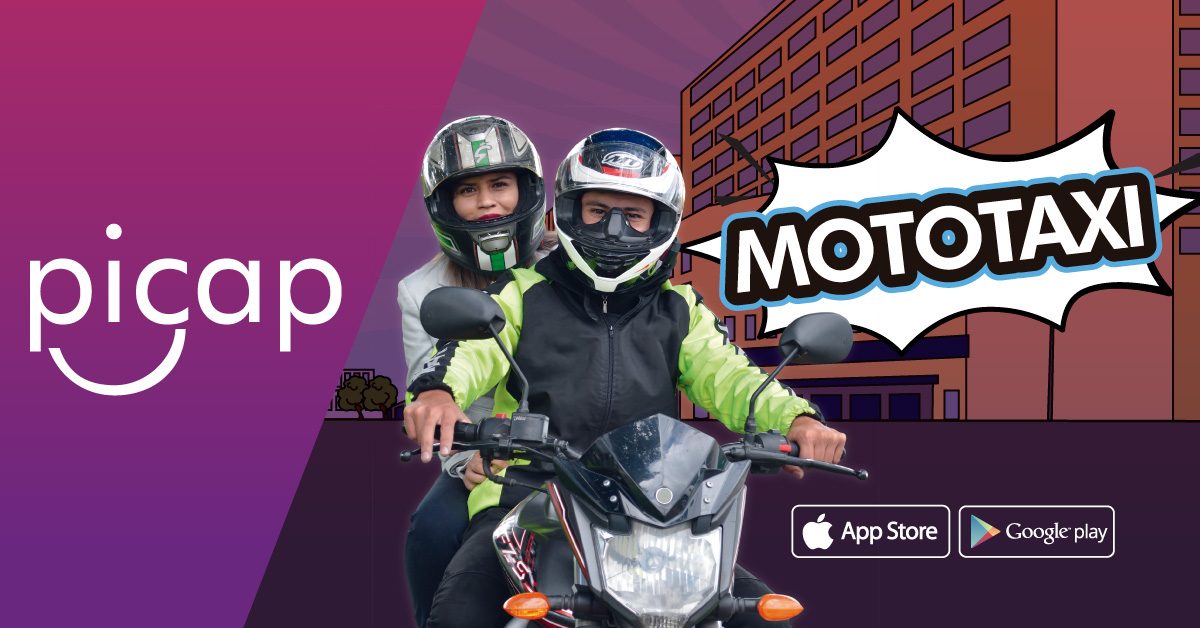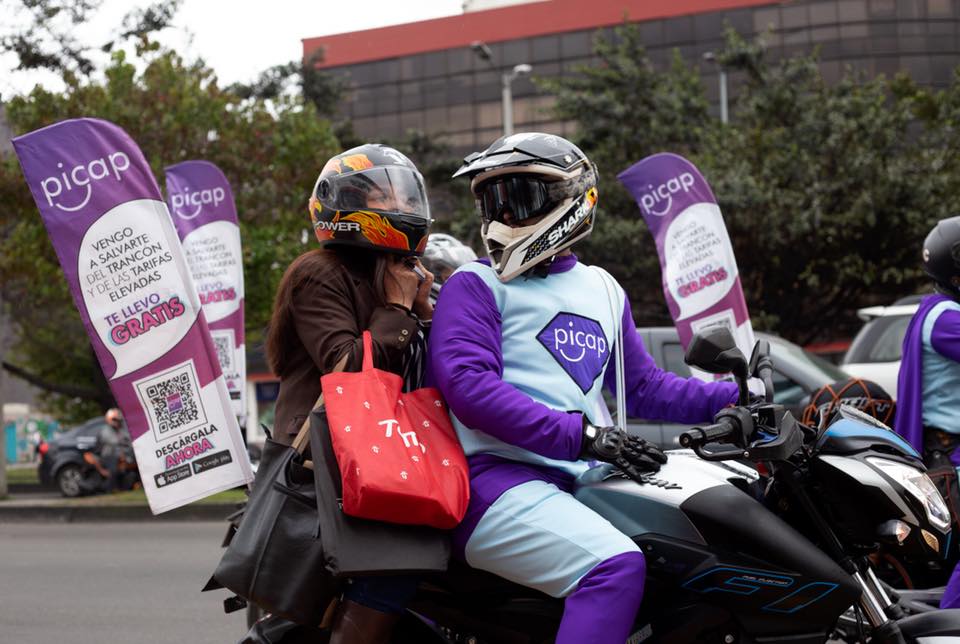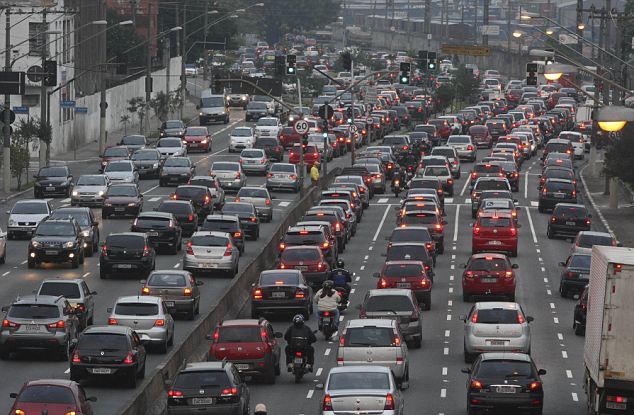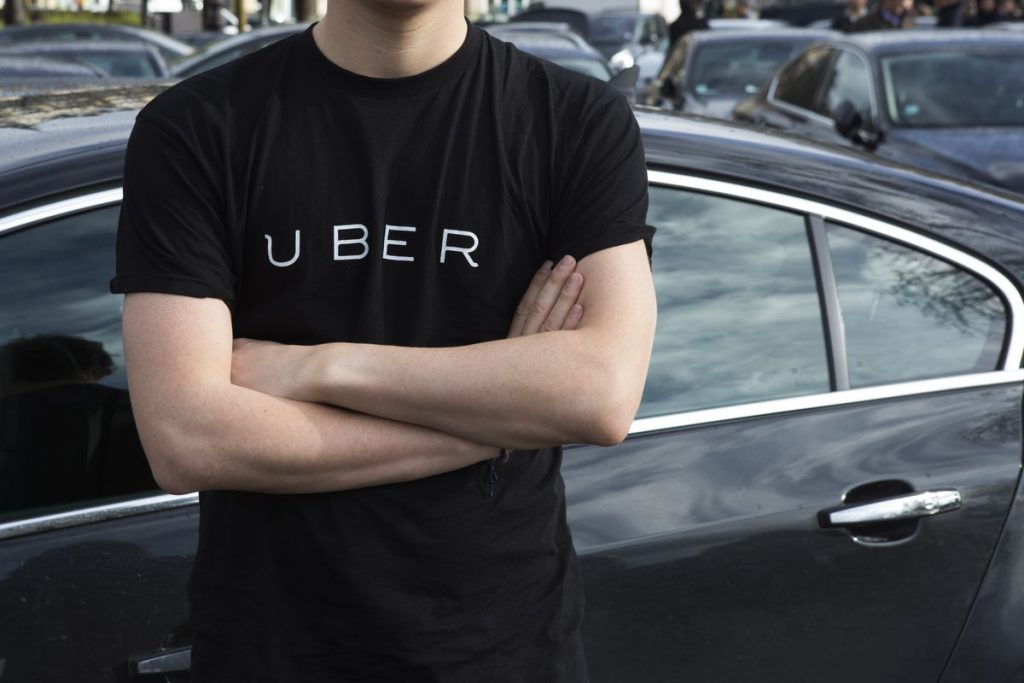RIO DE JANEIRO, BRAZIL – Colombian startup Picap, which allows you to request motorcycle ride service haling, has just arrived in Brazil.

To compete with companies like Uber and 99, it has advertised up to 30 percent cheaper rides, as well as a clear advantage: dodging traffic in big cities and promising to reduce travel time by up to 50 percent, said the company to news magazine Exame.
In three weeks, the app is already carrying out testing in São Paulo, Rio de Janeiro, Belo Horizonte, and Recife.
How it works
The operation is very similar to that of car apps: to register you need to download the app, available both for Android and IOS systems, and enter personal data, such as Facebook login or email.
The user must enter the pick-up address and then add the destination address. To order the ride, simply click on “request service”. To find out the approximate cost for the service, it is necessary to enter the starting address and the final destination.
Despite promising a lower rate than competitors such as Uber and 99, users have complained that they have seen little difference in rates.
In this scenario, the chance of riding in the rain, the greater the risk of having an accident, and the option of carrying only one backpack would not pay off.
Yet, some are comparing the new service with the possibility of sharing the car with other users, service in which travel time can be even longer than that of an individual journey.
Exame simulated a route between the Freguesia do Ó neighborhood, in the northern part of the city of São Paulo, and the Tatuapé neighborhood, in the eastern part of the city, at rush hour, and found a ride fee of approximately R$23.51 (US$6) for Picap, while Uber was charging R$57.68 for the same ride. In short, the Colombian app charged nearly half the price.
For now, Picap only allows cash payment, but the startup expects to offer credit and debit card options soon.

No commission charged
For those looking for some extra income, initially, the startup will not charge a commission from Brazilian motorcyclists. In Colombia, the app charges a 15 percent fee for service intermediation.
This is a means of encouraging the use of the app, since demand is still low, according to reports from users on its page.
Brazilian motorcyclists already using the app complain that they wait for hours for a call. Others point out that, when they are booked, the pickup distance is very far away.
The startup estimates that in Colombia, motorcyclists earn up to R$4,000 per month for rides on the App.
To become a registered driver, one needs to download the app, register with Facebook or e-mail, click on the menu located in the top left corner of the screen, click on “become a driver”, send the required documents and wait 48 hours.
To validate the registration on the Picap platform, the motorcyclist must submit a Type A National Driver’s License; updated vehicle documents, including payment of DPVAT insurance; own a motorcycle of up to ten years old with an engine of at least 100 cc capacity; the use of a helmet, both for the driver and for the passenger, is mandatory; and respect the municipal guidelines for driving with passengers, if any.
Regulations
Picap is also in conflict with a São Paulo law that has banned motorcycle taxis for a year and was sanctioned by Mayor Bruno Covas. Anyone breaking the law is liable to a fine of R$1,000.

The app company believes it is operating within the law. According to Picap, which cites judicial decisions, a municipal decree cannot contravene federal Law 12.587 and ban the service, but only define the rules for its operation.
This is not the understanding of the Transportation and Mobility Secretariat of the São Paulo City Hall.
The enatity stated, in a note, that the use of motorcycles to provide paid transport services for passengers is forbidden under Municipal Law 16.901/18, regardless of whether the service is provided directly or by means of an app.
“It is, therefore, an illegal service,” reports the municipal body, when queried about the app. According to city hall, the law aims to ensure the safety of citizens and prevent accidents.
In Colombia, the transportation service provided by the App is also being challenged by the government. However, the company points out that the greatest issue is the lack of regulation.
Three years in operation
In Colombia, Mexico, Argentina, and Peru — other markets where Picap operates — 850,000 rides were carried out by the app in May alone. The startup has achieved more than six million rides since its launch in 2016. Currently, some 20,000 motorcyclists use the service.
Started with its own capital, the company received investments of US$2.5 million, which allowed it to expand its service to other countries. The funding was provided by Signia Venture Partners.

The concept for this app emerged from the frustration of two Colombians living in Bogotá: Héctor Neira and Daniel Rodriguez. While wasting hours in traffic every day, they observed that motorcycles were the most efficient means of transport for congested urban environments.
Héctor has finance and foreign trade experience and has worked for over ten years in telecommunication and technology companies, while Daniel is a software engineer with over eight years of experience in the same sector. The two met in 2014 working as Chief Financial Officer, and Chief Technology Officer, respectively, for a technology company focused on mobility and transportation in Colombia.

